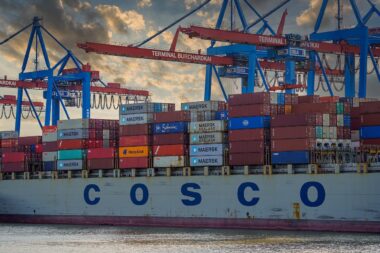The Role of Insurance in Cross-border Supply Chain Finance
In today’s global economy, the cross-border supply chain is crucial for businesses worldwide. Companies often rely on complex networks to import and export goods. This complexity introduces various risks, including financial uncertainties and disruptions related to international transactions. Effective risk management strategies are essential for this environment, and insurance plays a vital role in mitigating these risks. By utilizing specialized insurance products, businesses can protect their investments against unforeseen challenges. In this context, supply chain finance becomes increasingly relevant. It allows companies to manage cash flow effectively while reducing financial exposure during cross-border operations. The integration of insurance into these financial strategies enhances security for all involved parties. For instance, trade credit insurance safeguards exporters against the risk of buyer insolvency. Furthermore, cargo insurance protects shipments during transportation, ensuring that goods are covered against potential loss or damage. Thus, businesses can build robust supply chains without fearing unexpected financial burdens.
Understanding the importance of insurance in cross-border operations cannot be overstated. Cross-border trade is subject to varying laws, regulations, and market conditions in different countries. As such, businesses operate in an inherently risky environment. The role of insurance in this context becomes twofold: not only does it enhance financial security, but it also fosters greater trade confidence. When companies know that their investments are protected, they are more likely to engage in trade relationships across borders. Trade credit insurance allows firms to extend favorable terms to their buyers, boosting sales potential. Additionally, the assurance of coverage can open doors to new markets. Risk-sharing derivatives and financial instruments facilitate better visibilities of potential losses and ensure that businesses remain resilient. Moreover, the collaboration between insurers and businesses leads to innovative financial products tailored to specific needs. These products can help stabilize cash flows, enabling companies to navigate through volatile market conditions successfully. With this in mind, the strategic use of insurance becomes increasingly vital for sustaining growth in a competitive landscape.
Types of Insurance Relevant to Cross-border Trade
Several types of insurance are critical in the context of cross-border supply chain finance. Understanding these different options can help companies make better-informed decisions. Trade credit insurance is one of the most important forms, protecting businesses from the risks of buyer default. It mitigates financial exposure, allowing companies to extend more generous credit terms. Another vital component is cargo insurance, which ensures that physical goods are protected against losses during transport. This coverage is particularly relevant in the face of uncertainties associated with international shipping. Additionally, political risk insurance is crucial for businesses operating in politically unstable regions. This coverage accounts for risks such as expropriation or disruptions caused by unrest. Lastly, liability insurance, including product liability, safeguards businesses against claims related to the products they export. Each form of insurance provides distinct benefits tailored to different needs within the supply chain. By exploring these options, businesses can create comprehensive strategies to navigate the complex landscape of cross-border trade while minimizing potential losses.
The introduction of technological solutions plays a significant role in enhancing the efficiency of cross-border supply chain finance. As businesses increasingly adopt digital platforms, the insurance sector must adapt to these changes. Technologies like blockchain can provide transparency and security in trade transactions, reducing fraudulent activities. Smart contracts can automate insurance processes, streamlining claims and policy handling, ultimately saving time and resources. Insurers can develop digital platforms that connect directly with businesses to provide on-demand coverage tailored to their specific needs. Consequently, the digital transformation allows for real-time risk assessments, enabling timely responses to potential issues in supply chains. By harnessing data analytics, companies can identify trends and manage risks more effectively. Moreover, the future of insurance will heavily rely on innovations that improve customer experiences. By utilizing advanced technologies, insurers can offer personalized products that cater to each client’s demands, fostering sustainable growth in cross-border trade. As we continue evolving, it is essential to adapt to new technologies, ensuring the insurance industry remains relevant and effective at addressing emerging risks within supply chains.
Challenges in Obtaining Insurance
While the importance of insurance is evident, many businesses still face challenges in obtaining adequate coverage for cross-border transactions. A significant hurdle is the lack of transparency in the insurance market, particularly regarding terms, pricing, and available products. Companies may struggle to find tailored coverage that fits their specific needs. Additionally, businesses operating in high-risk regions may encounter difficulties securing the required coverage at reasonable rates. Insurers might impose restrictive conditions, leading firms to forego insurance altogether, exposing themselves to significant risks. The complexity of documentation and regulatory compliance further complicates the process. Companies may need to navigate different legal frameworks, making obtaining policies cumbersome. Furthermore, a limited understanding of international insurance products can lead to misinformed decisions. Businesses should prioritize forming partnerships with knowledgeable brokers or agents who specialize in cross-border supply chain finance. This expertise can help companies better navigate the landscape, ensuring they receive adequate protection. Thus, addressing these challenges is vital for businesses seeking to thrive in the international market.
Aside from the aforementioned challenges, firms must also be aware of the evolving nature of risks within global supply chains. Geopolitical tensions and economic instability can significantly impact cross-border trading relationships. Additionally, natural disasters and pandemics have exposed companies to new vulnerabilities, further complicating insurance coverage matters. To effectively combat these challenges, businesses need to continuously assess their risk management strategies. This includes staying informed about shifting market conditions and adjusting insurance coverage as needed. Moreover, developing strong relationships with insurance providers is crucial for accessing tailored products that meet specific organizational demands. As risks evolve, companies should prioritize flexibility in their insurance plans, ensuring they can adapt coverage to unforeseen challenges. Regularly reviewing and updating risk assessments can aid businesses in identifying gaps in their insurance strategy. A proactive approach will not only safeguard assets but also enhance overall resilience. Furthermore, understanding that insurance is just one aspect of a broader risk management strategy can help companies build more secure cross-border supply chains.
The Future of Insurance in Cross-border Supply Chain Finance
Looking ahead, the future of insurance in cross-border supply chain finance is undoubtedly intertwining with advancements in technology and analytics. As businesses continue embracing digital solutions, insurers have no choice but to innovate in the face of changing market demands. Artificial intelligence and machine learning are already producing transformative insights into risk assessment. By leveraging historical data and predictive analytics, insurers can better understand potential risks associated with specific supply chains. This will enable them to offer tailored solutions that align with their clients’ evolving needs. Furthermore, as sustainability becomes increasingly vital for stakeholders, insurers may need to adapt their strategies accordingly. This trend could see the rise of green insurance products that not only consider financial protection but also encourage environmentally-friendly practices within supply chains. Collaborations between insurers, businesses, and tech developers will be essential in fostering an agile and resilient insurance landscape. Ultimately, the synergy between insurance solutions and supply chain strategies will dictate the industry’s evolution, enabling businesses to confidently navigate the complexities of cross-border transactions.
In conclusion, the role of insurance in cross-border supply chain finance is critical for businesses navigating a complex global market. By mitigating risks associated with international trade, insurance fosters confidence and growth in cross-border operations. Various forms of coverage, including trade credit, cargo, political risk, and liability insurance, are essential in safeguarding assets during cross-border transactions. However, challenges such as market transparency and evolving risks necessitate ongoing adaptations within the insurance landscape. As digital technologies continue reshaping the industry, insurers must embrace innovation and meet the demands of businesses looking for tailored protection. Furthermore, developing strong relationships with insurance providers can provide companies access to the specific products needed for their global operations. As we move forward, collaboration between stakeholders will be vital in addressing emerging risks and sustainability concerns. With an understanding of the importance of comprehensive risk management strategies, businesses can harness the power of insurance to optimize their supply chains and enhance their competitive edge in the international arena.





